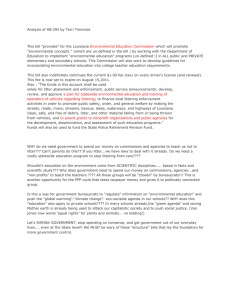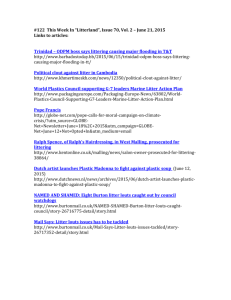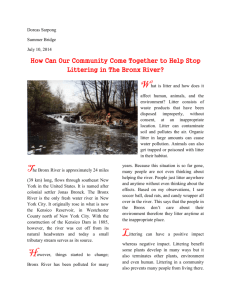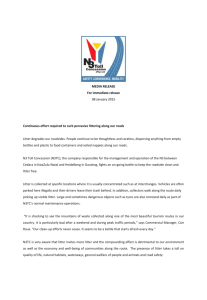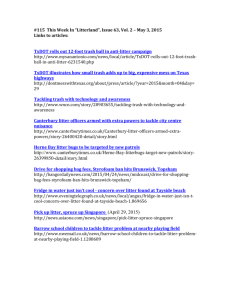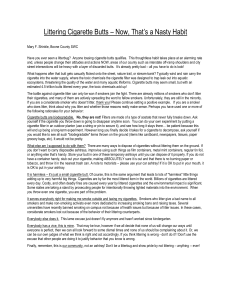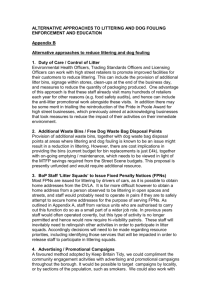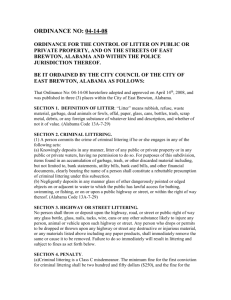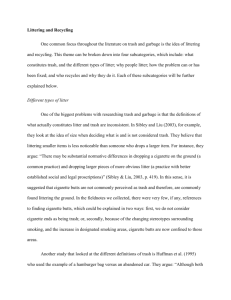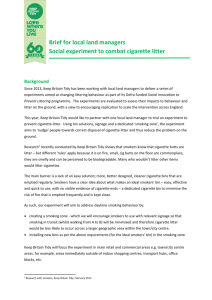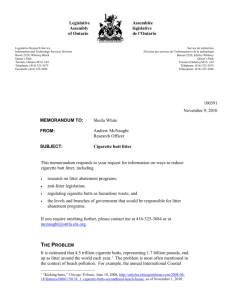Littering (Word 537KB)
advertisement
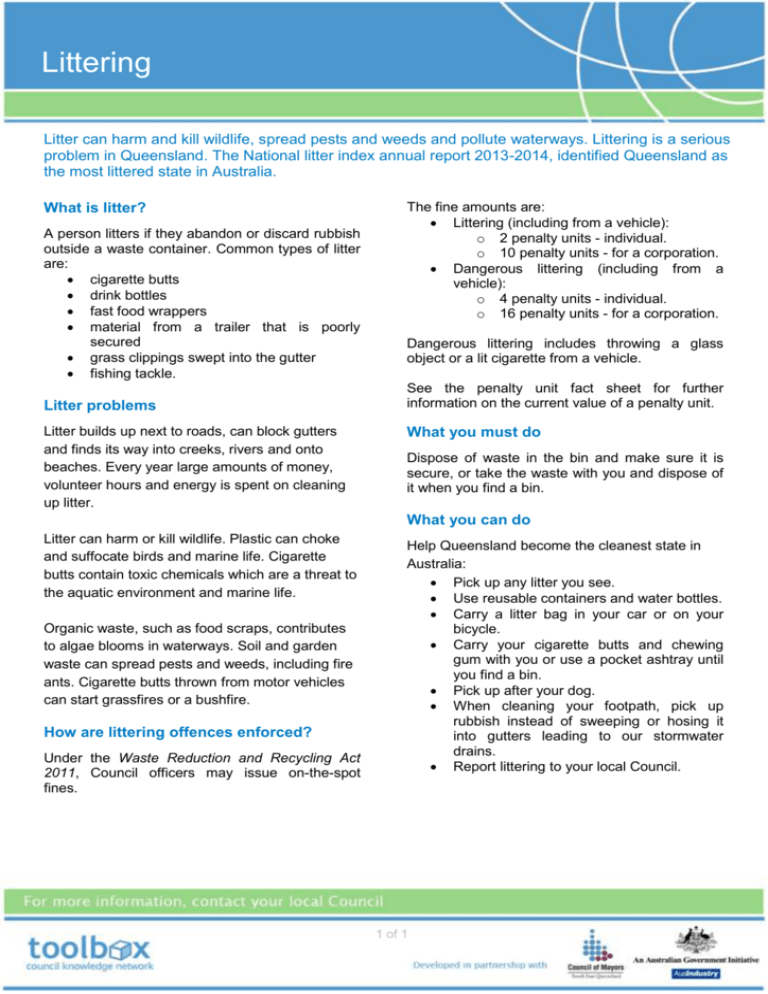
Littering Litter can harm and kill wildlife, spread pests and weeds and pollute waterways. Littering is a serious problem in Queensland. The National litter index annual report 2013-2014, identified Queensland as the most littered state in Australia. What is litter? A person litters if they abandon or discard rubbish outside a waste container. Common types of litter are: cigarette butts drink bottles fast food wrappers material from a trailer that is poorly secured grass clippings swept into the gutter fishing tackle. Litter problems Litter builds up next to roads, can block gutters and finds its way into creeks, rivers and onto beaches. Every year large amounts of money, volunteer hours and energy is spent on cleaning up litter. The fine amounts are: Littering (including from a vehicle): o 2 penalty units - individual. o 10 penalty units - for a corporation. Dangerous littering (including from a vehicle): o 4 penalty units - individual. o 16 penalty units - for a corporation. Dangerous littering includes throwing a glass object or a lit cigarette from a vehicle. See the penalty unit fact sheet for further information on the current value of a penalty unit. What you must do Dispose of waste in the bin and make sure it is secure, or take the waste with you and dispose of it when you find a bin. What you can do Litter can harm or kill wildlife. Plastic can choke and suffocate birds and marine life. Cigarette butts contain toxic chemicals which are a threat to the aquatic environment and marine life. Organic waste, such as food scraps, contributes to algae blooms in waterways. Soil and garden waste can spread pests and weeds, including fire ants. Cigarette butts thrown from motor vehicles can start grassfires or a bushfire. How are littering offences enforced? Under the Waste Reduction and Recycling Act 2011, Council officers may issue on-the-spot fines. Help Queensland become the cleanest state in Australia: Pick up any litter you see. Use reusable containers and water bottles. Carry a litter bag in your car or on your bicycle. Carry your cigarette butts and chewing gum with you or use a pocket ashtray until you find a bin. Pick up after your dog. When cleaning your footpath, pick up rubbish instead of sweeping or hosing it into gutters leading to our stormwater drains. Report littering to your local Council. 1 of 1
